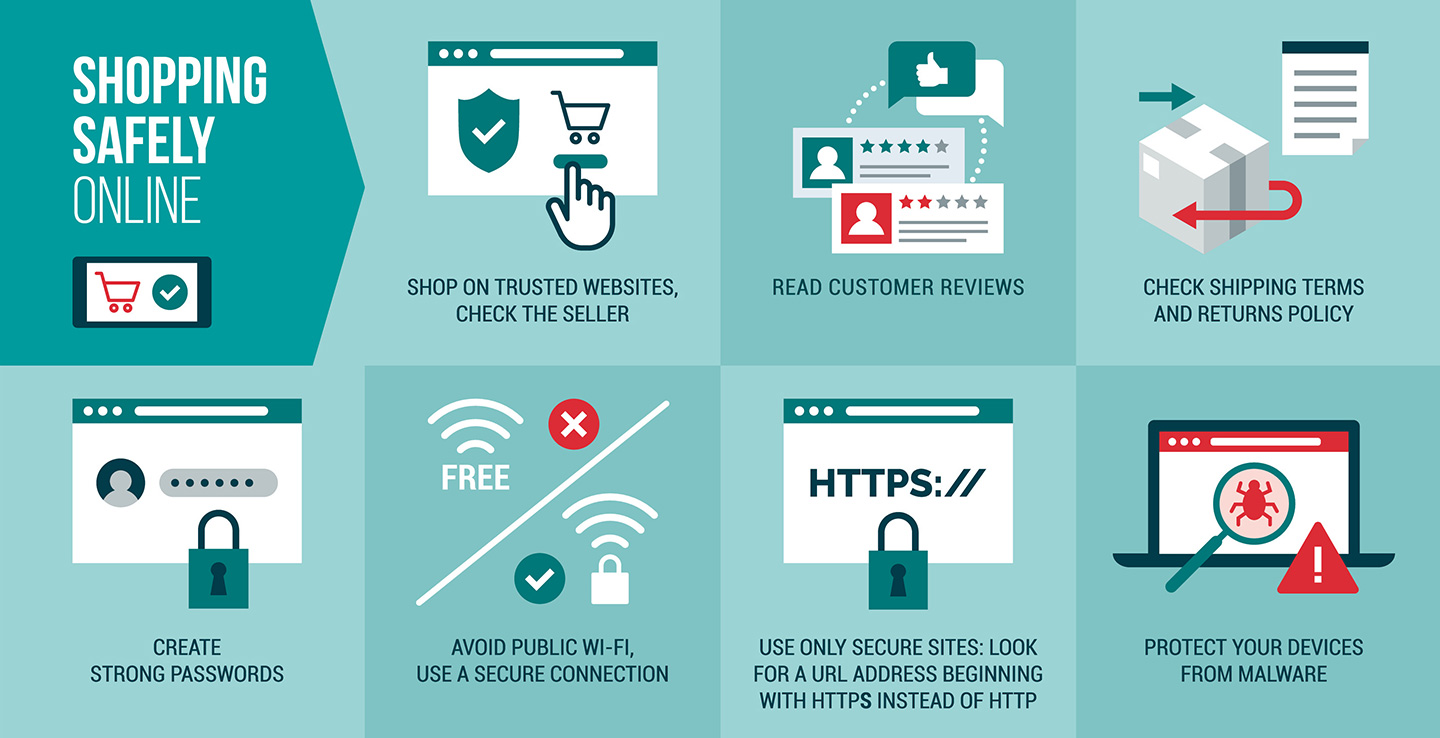Home › Technology › Stay Safe While Scoring Big Deals
Home › Technology › Stay Safe While Scoring Big Deals

Major sales like 11.11 and 12.12 offer amazing bargains but are also prime times for online scams. Here’s how to protect yourself and shop securely.
If you find yourself eagerly adding items to your wish list ahead of the 11 November sales, also known as 11.11, and setting an alarm to secure discounts, you’re not alone.
Many shoppers indulge in these ‘double day’ sales, named for their repeated numbers like 10.10, 11.11, and 12.12. The trend began in 2009 with 11.11, or Singles’ Day, launched by Chinese e-commerce giant Alibaba.
However, this rush to secure deals creates opportunities for scammers. The Consumers Association of Singapore reported a 54% increase in complaints about online purchases in the first half of 2023, including issues like defective goods and false claims.
According to the Singapore Police Force (SPF)’s Mid-Year Scams and Cybercrime Brief, e-commerce scams were among the top three scams in the first half of 2024, accounting for 27.3% of all reported scams. The total loss from e-commerce scams during this period was at least $8.6 million.
While the lure of a great deal is strong, staying vigilant is key to protecting yourself from losing something more valuable — your personal data, bank details, or even your savings.

Online scammers have become more sophisticated, using digital tools to create fake emails and websites that closely mimic trusted platforms, complete with stolen logos and fine print. AI tools like ChatGPT have also helped scammers disguise poor English and craft convincing messages in the style of well-known brands or influencers.
In Singapore, common scams often occur on platforms like Facebook Marketplace and Carousell. A typical example is the shipping scam, where scammers post fake item listings. Once a deal is confirmed, they ask for the buyer’s phone number to “arrange a delivery.” They then send a WhatsApp message with a phishing link, asking the buyer to confirm shipping costs and make a separate payment. This link leads to a fraudulent site designed to steal bank login details and One-Time Passwords (OTP).
Sellers are also targeted. A common scam involves fake buyers sending emails claiming to be from the platform, with a link to complete payment. The link directs sellers to a fake website where they’re tricked into entering their banking details.
Scammers may also clone entire e-commerce websites or apps, offering goods at incredibly low prices. Once buyers enter their credit card information, they’re charged for items that never arrive.
Additionally, scammers frequently sell counterfeit or fraudulent goods on legitimate platforms. Concert tickets are one of the top items involved in scams in Singapore, with victims only realising the tickets are fake when they’re denied entry at the venue.
When shopping online, keep in mind the golden rule: if it seems too good to be true, it probably is.
Scammers often target victims on social media platforms like Instagram, Facebook, and TikTok, using ads to promote fake deals. Falling for these ads can result in your credit card being charged for items you never receive — or for additional goods you didn’t order.
As of this year, the most common platforms for e-commerce scams in Singapore were Facebook, Carousell, and Telegram, according to the SPF.
Another red flag is websites lacking secure payment options or SSL certificates. (Tip: always check if the website’s URL begins with “https” rather than “http”.) Websites using “http” transmit data in plaintext, making your credit card details vulnerable to scammers. This weakness is often exploited in triangulation fraud, where scammers steal your information to make purchases on legitimate websites while operating fake storefronts.
Scammers also use social engineering tactics, pressuring buyers with urgent messages like “Only one item left!” or “Limited time offer!” to prompt quick, impulsive purchases without careful consideration.
Even if you do receive your purchase, it might not be what you expected. Always read the return and refund policies carefully — scammers often use vague language or omit important details on how to get your money back if you’re dissatisfied with the goods.

To help combat scams, the Ministry of Home Affairs has introduced the E-commerce Marketplace Transaction Safety Ratings, allowing customers to assess which platforms have strong security measures and are safer for transactions.
Here are some key tips to ensure your safety while shopping online:
Use reputable platforms
Stick to well-established e-commerce platforms with strong verification processes. Look for platforms where sellers’ identities are verified through official documentation, like a business UEN (Unique Entity Number).
Check seller reviews
Always check seller reviews before purchasing. Detailed reviews, especially those with verified proof of purchase, are generally more reliable than a cluster of five-star ratings from newly created accounts with no comments. Be cautious, as some legitimate businesses may use fake reviews to boost sales.
Avoid clicking on suspicious links
Avoid clicking on unsolicited links in emails or messages. Instead, visit the brand’s official website directly to verify any offers. If you receive a bank notification about a payment you didn’t authorise, log in through your banking app or contact your bank directly—never use a link provided in the message.
Use credit cards for payments
Credit cards typically offer better fraud protection than debit cards or bank transfers. In the event of a scam — such as receiving counterfeit goods — you can dispute the charge and avoid losing money.
Choose payment gateways with buyer protection
Use payment gateways that offer buyer protection, holding payments until you confirm receipt of the goods. This helps ensure you’re not paying for items that don’t arrive.
Enable Two-Factor Authentication (2FA)
Adding 2FA provides an extra layer of security. Even if scammers obtain your login credentials, 2FA requires a second step to confirm your identity, making unauthorized transactions difficult. Be cautious with OTPs, though—scammers may try to trick you into sharing them. Many banks are moving toward in-app authentication for additional protection.
Download ScamShield
The ScamShield app helps detect and report scams. You can also call the SPF’s 24/7 anti-scam helpline at 1799 if you think you’ve been scammed. Both resources are valuable tools for safe online shopping.
As you enjoy the sales season, remember: smart shoppers not only snag the best deals but also stay vigilant against scams.
Like our stories? Subscribe to our Frontline Digital newsletters now! Simply download the HomeTeamNS Mobile App and update your communication preference to ‘Receive Digital Frontline Magazine’, through the App Settings.





